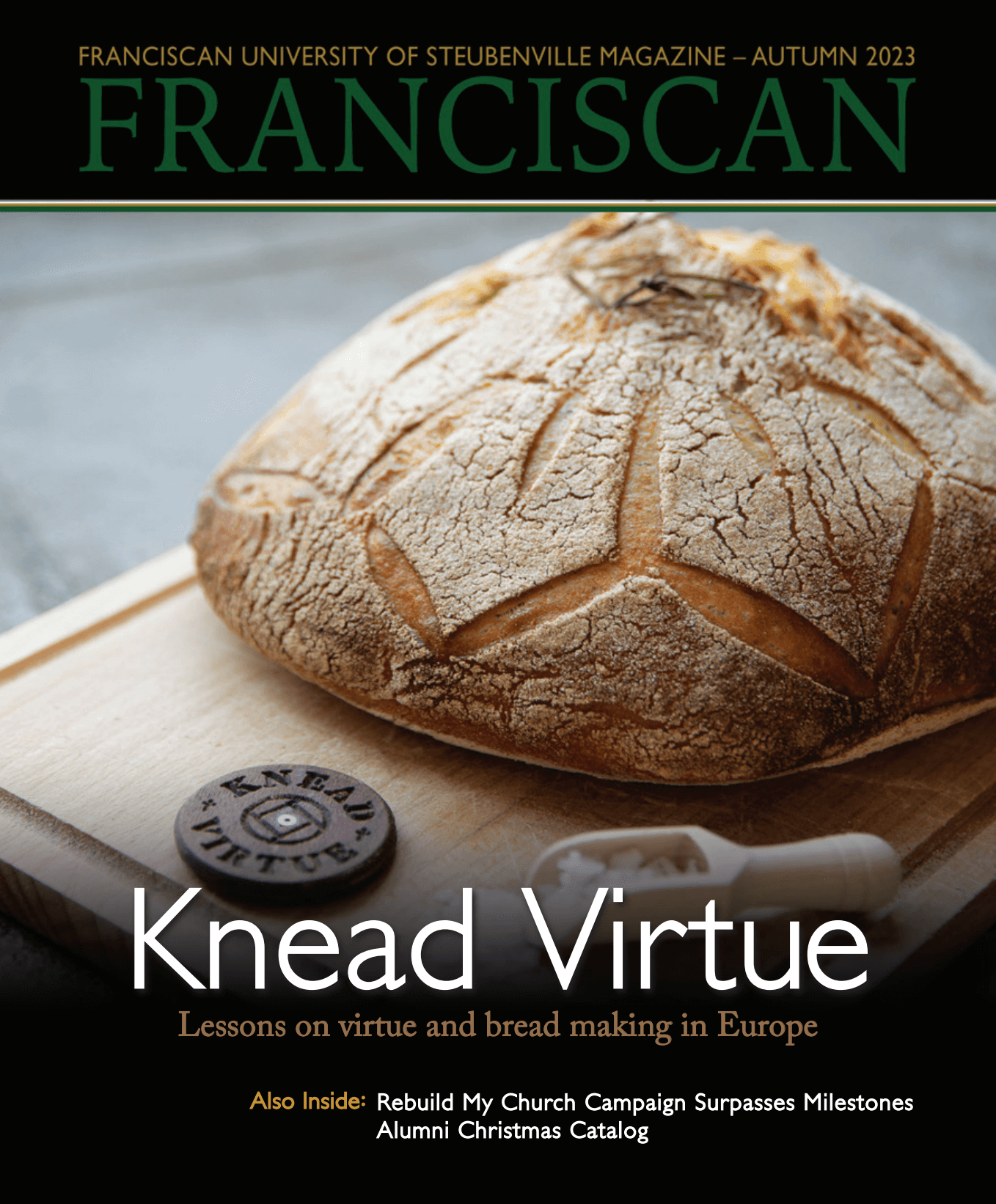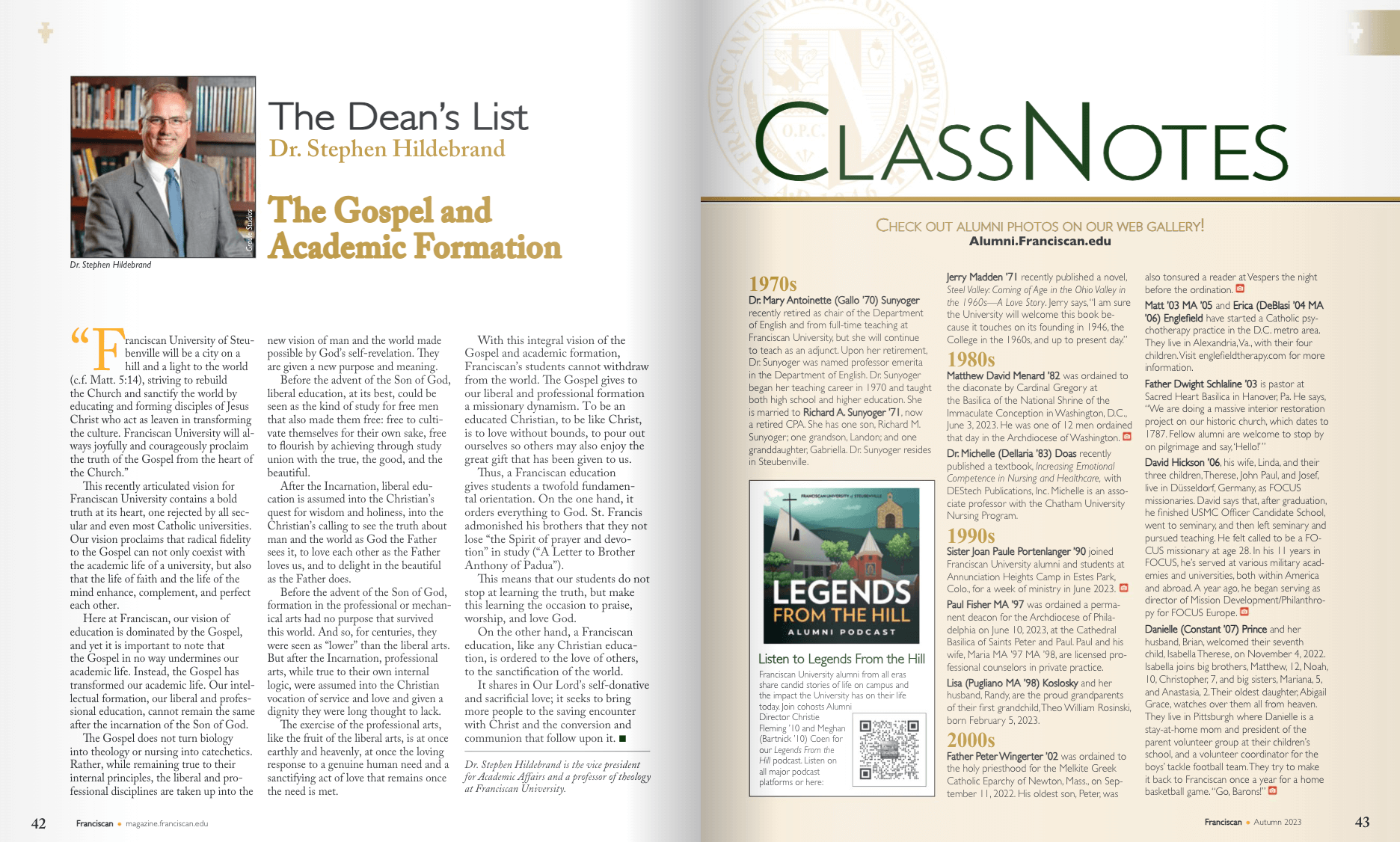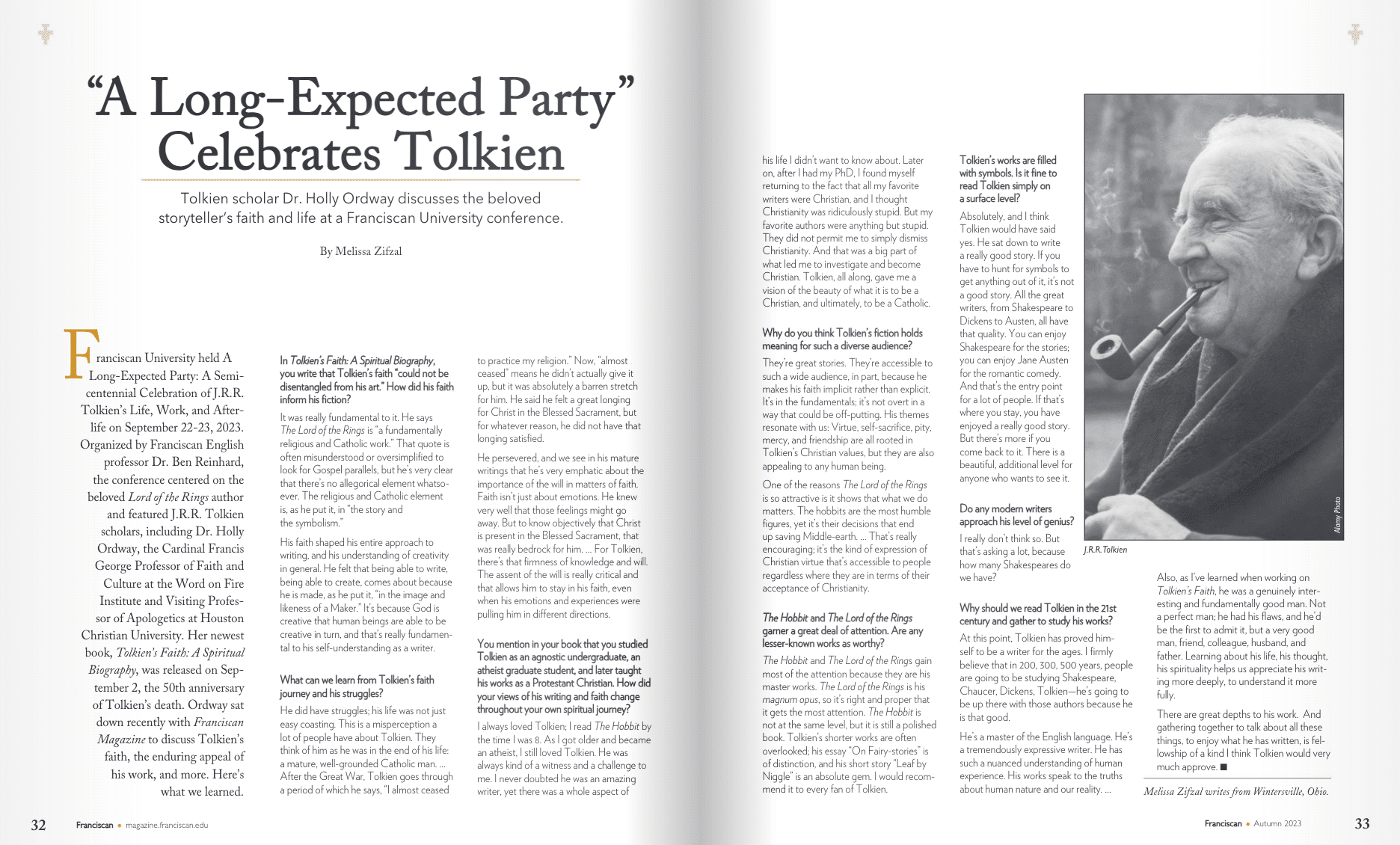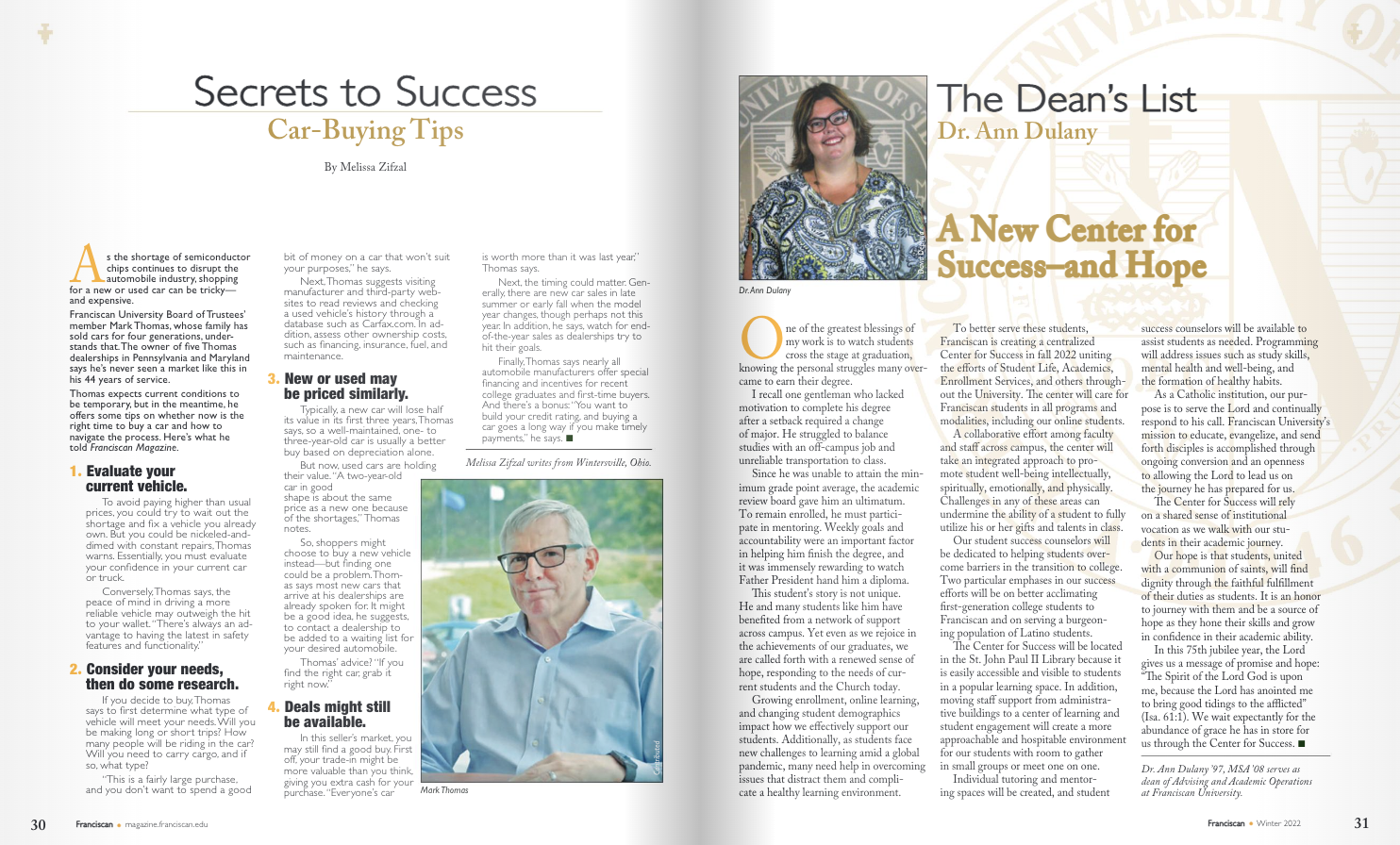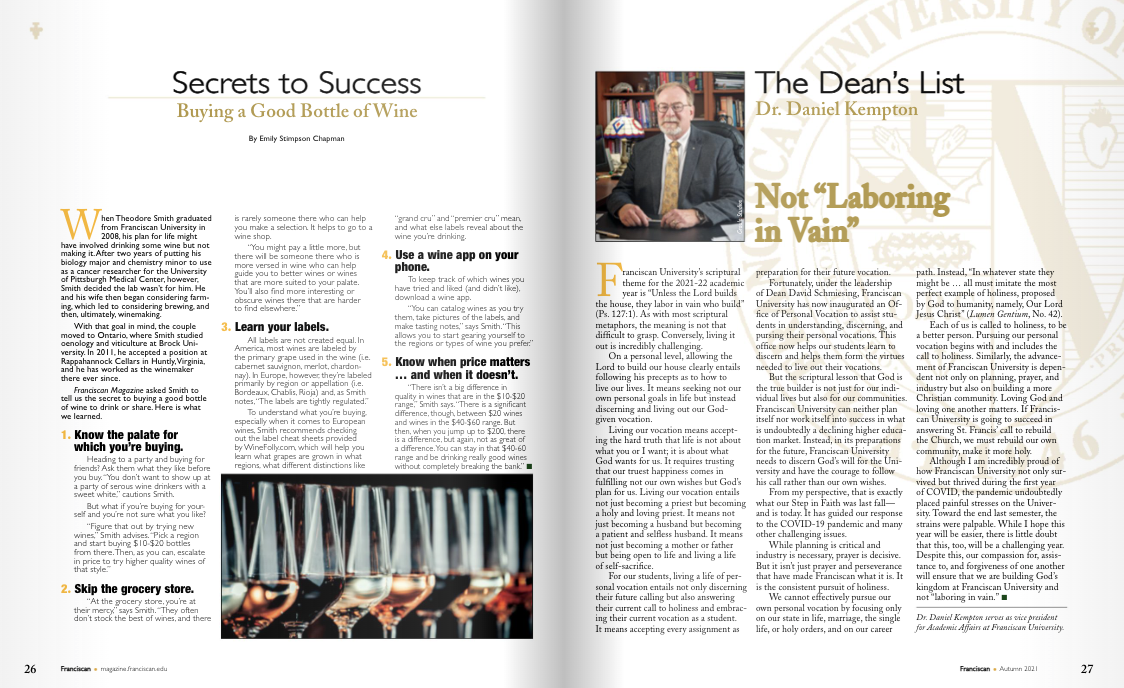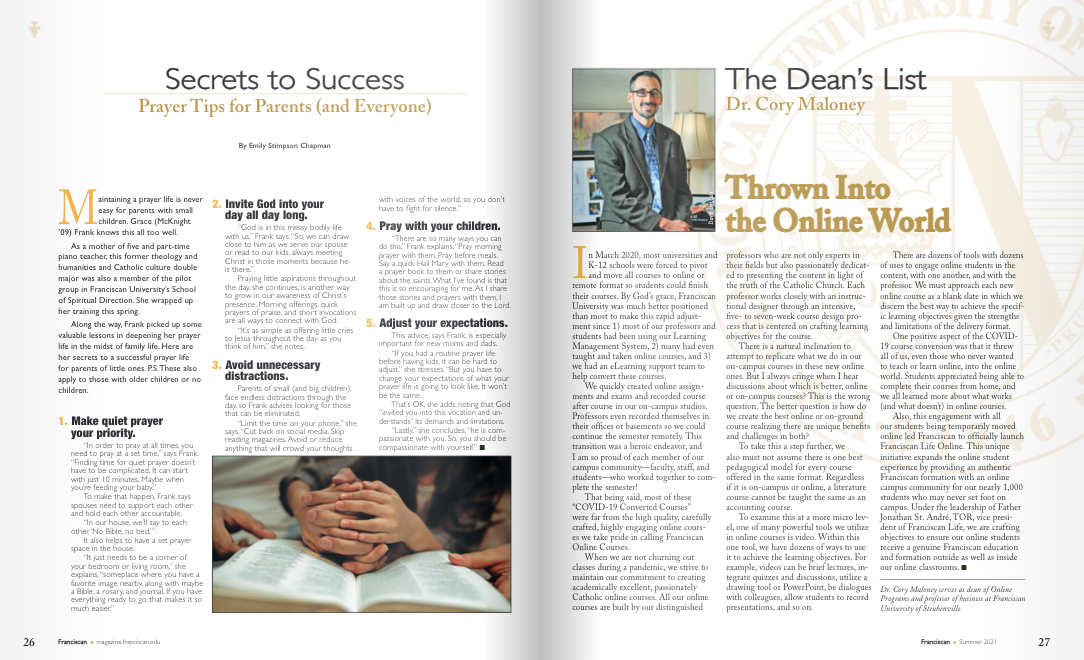“Franciscan University of Steubenville will be a city on a hill and a light to the world (c.f. Matt. 5:14), striving to rebuild the Church and sanctify the world by educating and forming disciples of Jesus Christ who act as leaven in transforming the culture. Franciscan University will always joyfully and courageously proclaim the truth of the Gospel from the heart of the Church.”
This recently articulated vision for Franciscan University contains a bold truth at its heart, one rejected by all secular and even most Catholic universities. Our vision proclaims that radical fidelity to the Gospel can not only coexist with the academic life of a university, but also that the life of faith and the life of the mind enhance, complement, and perfect each other.
Here at Franciscan, our vision of education is dominated by the Gospel, and yet it is important to note that the Gospel in no way undermines our academic life. Instead, the Gospel has transformed our academic life. Our intellectual formation, our liberal and professional education, cannot remain the same after the incarnation of the Son of God.
The Gospel does not turn biology into theology or nursing into catechetics. Rather, while remaining true to their internal principles, the liberal and professional disciplines are taken up into the new vision of man and the world made possible by God’s self-revelation. They are given a new purpose and meaning.
Before the advent of the Son of God, liberal education, at its best, could be seen as the kind of study for free men that also made them free: free to cultivate themselves for their own sake, free to flourish by achieving through study union with the true, the good, and the beautiful.
After the Incarnation, liberal education is assumed into the Christian’s quest for wisdom and holiness, into the Christian’s calling to see the truth about man and the world as God the Father sees it, to love each other as the Father loves us, and to delight in the beautiful as the Father does.
Before the advent of the Son of God, formation in the professional or mechanical arts had no purpose that survived this world. And so, for centuries, they were seen as “lower” than the liberal arts. But after the Incarnation, professional arts, while true to their own internal logic, were assumed into the Christian vocation of service and love and given a dignity they were long thought to lack.
The exercise of the professional arts, like the fruit of the liberal arts, is at once earthly and heavenly, at once the loving response to a genuine human need and a sanctifying act of love that remains once the need is met.
With this integral vision of the Gospel and academic formation, Franciscan’s students cannot withdraw from the world. The Gospel gives to our liberal and professional formation a missionary dynamism. To be an educated Christian, to be like Christ, is to love without bounds, to pour out ourselves so others may also enjoy the great gift that has been given to us.
Thus, a Franciscan education gives students a twofold fundamental orientation. On the one hand, it orders everything to God. St. Francis admonished his brothers that they not lose “the Spirit of prayer and devotion” in study (“A Letter to Brother Anthony of Padua”).
This means that our students do not stop at learning the truth, but make this learning the occasion to praise, worship, and love God.
On the other hand, a Franciscan education, like any Christian education, is ordered to the love of others, to the sanctification of the world.
It shares in Our Lord’s self-donative and sacrificial love; it seeks to bring more people to the saving encounter with Christ and the conversion and communion that follow upon it.




